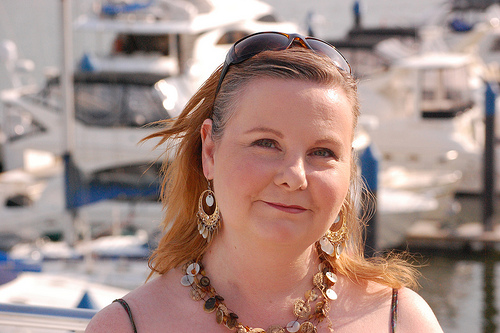 Found via a loopy stagger around and off sulz‘s blog. Cross-posted from raincoaster.
Found via a loopy stagger around and off sulz‘s blog. Cross-posted from raincoaster.
As always with our Benchmarks, we suggest that you copy the results of your test and post them in your blog for self-knowledge and future comparison. We’re all evolving, and it’s a huge boost to recognize just how far you may have come since beginning the process of mindful change. If you’re concerned about privacy, password-protect the post; if you’re a let-it-all-hang-out person like me, you can just post away. Note that for this test, you will want to copy not only the HTML it gives you, but the big body of text as well, since there’s a lot of info in there you don’t get in just the small table.
Maslow’s Hierarchy of Needs is more well-known than well-understood, but now anyone can find out how self-realized s/he may be (to a certain extent anyway). Check out the rock-solid ego on moi:
|
Maslow Inventory Results |
| Physiological Needs (80%) you appear to have a deficiency in your basic needs. Safety Needs (50%) you appear to have an adequately secure environment. Love Needs (57%) you appear to be semi-content with the quality of your social connections. Esteem Needs (37%) you appear to have a high level of personal competence. Self-Actualization (55%) you appear to have an average level of individual development. |
Take Free Maslow Inventory Test
personality tests by similarminds.com
Monstrously detailed analysis over the jump…
Detailed Maslow Inventory Test Results
| Physiological Needs | |||||||||||||||||| | 80% | |
| Safety Needs | |||||||||||| | 50% | |
| Love Needs | |||||||||||||| | 57% | |
| Esteem Needs | |||||||||| | 37% | |
| Self-Actualization | |||||||||||||| | 55% |
| Abraham Maslow authored the Hierarchy of Needs theory, stating that human beings are motivated by unsatisfied needs, and that certain lower needs have to be satisfied before higher needs can be attended to. It is debatable that needs fulfillment occurs in as linear a fashion as Maslow presents (or that Maslows needs structure is entirely accurate), but you can decide that for yourself. Also, higher needs tend to be more complex and vague in what qualifies as need satisfaction. The following results are listed in the order Maslow defined.Physiological Needs : you appear to have a deficiency in your basic needs. Maslow speculates that without satisfying basic needs (food, shelter, health) one cannot achieve higher levels of development. This generally makes sense, but the history of starving artists and successful artists who tanked after they became wealthy is important to note.
Safety Needs: you appear to have adequate enviromental safety. Maslow speculates that without enviromental stability (security, safety, consistency), you can’t progress to higher levels of development. Neuroscience research would appear to support this, as higher stress contributes to higher cortisol levels, which impair memory and thinking functions. However, low stress can also lead to obesity and cardiac degeneration. The lazier and weaker you become, the more stressful the most minimal tasks and stimuli become. Love Needs: you appear to be somewhat content with the quality of your social connections. Maslow speculates that discontentment in your connections with others stalls development. Whether the resolution of love needs comes with good relationships and/or learning to be more internally fulfilled is a question Maslow does not answer. But history would suggest many advanced minds had few relationships so this stage would seem to be more about resolving internal perceptions than as a call for measuring/achieving happiness by quality of external relationships. Esteem Needs: you appear to have a high level of skill competence. Maslow speculates that until you develop a good skill set (talent, trade, expertise that you excel at) you will be unable to develop further as an individual (much less reliably support yourself financially). This could mean being a good musician, painter, doctor, carpenter, etc.. On some level this stage also requires getting over the need to be appreciated for that skill, internally and/or externally. Even if you develop a skill, you still might be hung up on the need to have other people validate you or you might internally doubt yourself. Then again, you might not be appreciated, or appreciate yourself because your skills are still too undeveloped. Self-Actualization: you appear to have an average level of individual development. Maslow speculates that individual development is the pinnacle of existence, this means pursuing a career/life that really fits who you are and want to be internally (not based on external and societal expectations). The self actualized person is free from superficial concerns and is internally honest. |
















July 9th, 2007 → 7:46 am
[…] Found via a loopy stagger around and off sulz’s blog. Cross-posted to running through rain. […]